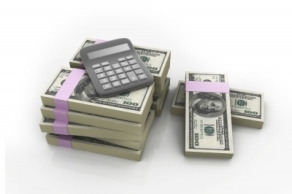April 12, 2012
 Tax Refunds
Tax Refunds
With the tax filing deadline around the corner for both the US (April 17) and for Canada (April 30), many taxpayers will be expecting tax refunds.
According to a National Retail Federation (NRF) survey, two-thirds of US taxpayers are expecting a tax refund this year. The tendency when receiving a win-fall check from government is to go out and spend it. However, in these tough economic times, you may need to take more controlled actions around this and may need to make some wise decisions when receiving tax refunds.
You will have several options and choices to make on how to best utilize that money. Most families and individuals have significant short and long-term debt, and priorities that must be accommodated. Strong financial planning is required when making decisions, and you will need to prioritize items, in either the payoff or investment categories. Where needed, always seek the advice of a professional to assist in your own personal financial situation.
Tax Refunds – Use to Tackle Debt Payments
Debt payments should be a first consideration and priority with the money from the tax refunds. The NRF survey counted 39.4% of taxpayers who expected a refund, stated they would pay down debt. Following some of these trends from the survey, you may need to focus on the following sources of debt:
- High interest credit card debt, high interest Line of Credit balances
- Short term debt – personal loans, car loans, debt owed to other taxes, & “bills“
- Longer term debt – mortgage payments
Tax Refunds – Utilize for Savings and Investments
Once debt obligations have been taken care of, partially or fully, savings and investments can be considered with the remainder of the tax refunds. In the NRF survey, 43.8% of those US taxpayers surveyed, stated that they will take the refund and move some of it to savings. If you have no debt then obviously you may find brilliant investments to generate additional revenue for you. Be smart with your money and make informed decisions to invest. You may take riskier approaches to investments, while others take a lower return, risk-adverse investment strategy with money from tax returns. Once again, a financial advisor is your best source to guide you through financial management of your resources. Here are some examples of investments you may be considering:
- Saving accounts, term deposits
- Retirement savings accounts (term deposits)
- Retirement savings (mutual fund linked, stock-market linked)
- Educational savings plans
- Real estate investments
- Business Investments
Tax Refunds – Other Uses
There will be a select group of individuals who do not have debt obligations and may have existing lucrative investment portfolios. In those situations, social investments in community causes and donations could be considered. In tough economic times, someone may need your help.
Spend and invest wisely!
Business information, resources and tips for the entrepreneur
© 2012 Strategy Plan One
No comments:
Post a Comment